Finance for Small and Medium-Sized Enterprises - DTI Home Page
Finance for Small and Medium-Sized Enterprises - DTI Home Page
Finance for Small and Medium-Sized Enterprises - DTI Home Page
You also want an ePaper? Increase the reach of your titles
YUMPU automatically turns print PDFs into web optimized ePapers that Google loves.
<strong>Finance</strong> <strong>for</strong> <strong>Small</strong> <strong>and</strong> <strong>Medium</strong>-<strong>Sized</strong> <strong>Enterprises</strong>: A Report on the 2004 UK Survey of SME <strong>Finance</strong>s<br />
5.1 Impacts of financial skills, <strong>and</strong> other business characteristics, on rejections<br />
We conclude this section by assessing the impacts of financial skills, confidence, use<br />
of external advice, <strong>and</strong> other business characteristics, on rejection rates. In this<br />
regard, it may be expected that businesses with qualified financial managers could, <strong>for</strong><br />
example, write better business plans increasing their chances of obtaining funds.<br />
Also, individuals who are confident in dealing with finances may present themselves<br />
more credibly to lenders, improving their access to finance.<br />
In the following table we report estimates from a model relating the probability of<br />
(any) outright rejection to financial skills, confidence, non-use of external advice <strong>and</strong><br />
other business characteristics. The marginal effects give the impact, in percentage<br />
points, of the presence of (or changes in) particular business characteristics on the<br />
likelihood of rejection. The sample relates to sole traders <strong>and</strong> partnerships only since<br />
companies were not asked about financial qualifications or their confidence in dealing<br />
with finances.<br />
Table 5.1.1: The Impacts of Financial Skills, <strong>and</strong> Other Business Characteristics, on<br />
Loan Rejections. Marginal Effects (× 100) of Independent variables on the<br />
Likelihood of Rejection (Population Weighted, Instrumental Variable, Probit<br />
Estimation) (Some Estimates of Control Variables Not Reported 1 )<br />
FFECT<br />
(% POINTS ON<br />
REJECTION RATE)<br />
P-VALUE 2<br />
INDEPENDENT VARIABLES MARGINAL E<br />
Financially qualified 0.003<br />
3<br />
-3.200<br />
Low confidence in dealing<br />
with<br />
3<br />
finances<br />
( confidence score of 1-5: see section<br />
2)<br />
3.332 0.233<br />
No external advice 0.248<br />
3<br />
-1.901<br />
Female business -0.201 0.642<br />
Ethnic minority business 2.286 0.052<br />
High-growth business<br />
0.241 0.683<br />
Length of relationship with main<br />
bank<br />
-0.073 0.001<br />
Number of financial providers 0.937 0.000<br />
Switched banks in the last 3 years 0.054 0.927<br />
Number of financial products used 0.018 0.913<br />
2<br />
χ (p-value)<br />
N = 2,0324,227; N = 1,009<br />
p<br />
0.000<br />
Notes:<br />
1.<br />
Estimates of additional controls, <strong>for</strong> firm size, industry <strong>and</strong> region, are not reported.<br />
2.<br />
The p-values denote the exact levels of significance <strong>for</strong> the tests that the marginal effects are equal to<br />
zero. A p-value smaller than 0.05 (0.10) implies the effects are statistically significantly different<br />
from<br />
zero at the 5% (10%) level.<br />
69


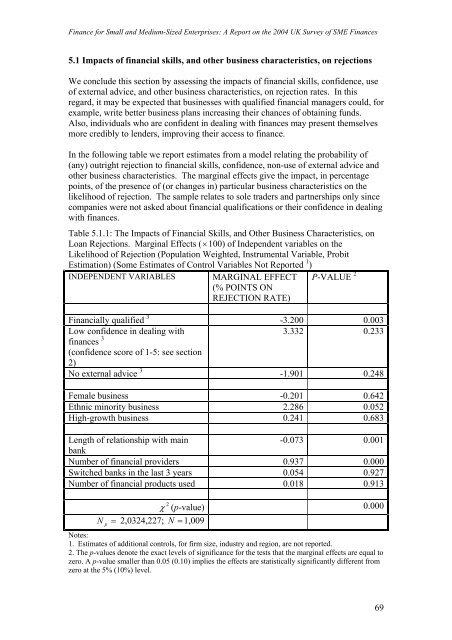
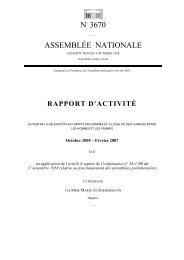
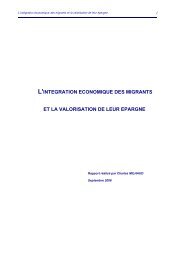

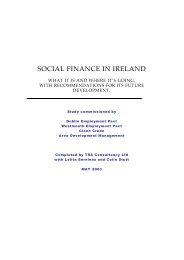

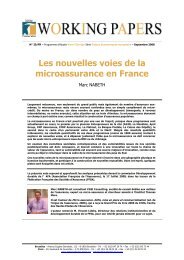
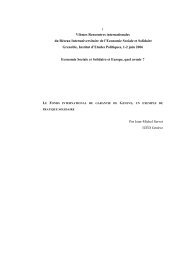
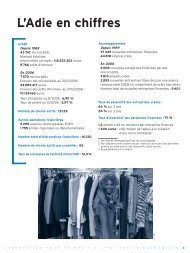



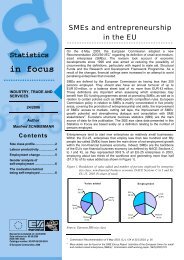
![Joint Report on Social Protection and Social Inclusion [2005]](https://img.yumpu.com/19580638/1/190x132/joint-report-on-social-protection-and-social-inclusion-2005.jpg?quality=85)
